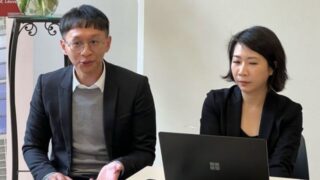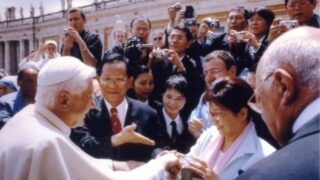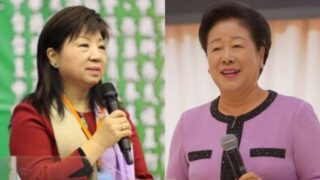Dickens’ A Christmas Carol tells us that miracles happen when we turn to conscience. A miracle of solidarity happened in the Tai Ji Men case.
by Massimo Introvigne*
*A paper presented at the webinar “After 25 Years: Solidarity with Tai Ji Men,” co-organized by CESNUR and Human Rights Without Frontiers on December 21, 2021, after the 25th anniversary of the crackdown on Tai Ji Men (December 19, 1996) and the International Human Solidarity Day (December 20).
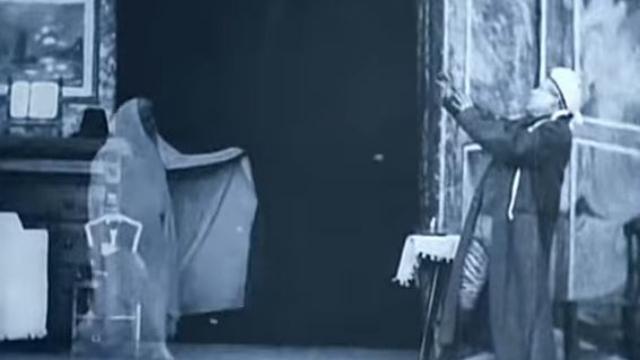

As we continue to celebrate International Human Solidarity Day, many of us are also busy preparing for Christmas, a time of miracles. In Europe, every year several media and TV channels go back to the Christmas of 1843, and present different versions of what is perhaps the greatest Christmas tale ever written, A Christmas Carol, by British novelist Charles Dickens.
It is the story of a greedy old businessman, Ebenezer Scrooge, who refuses all forms of human solidarity and only cares for money. On Christmas Eve, while he sleeps, he is visited by four ghosts. The first is his deceased business partner, who was as greedy as Scrooge, and is now punished and should wander the earth carrying heavy money boxes and chains. The other three are the spirits of Christmas Past, Christmas Present, and Christmas Yet to Come. The first shows to Scrooge how he spent Christmas as a child and a young man, and lost the love of his life because he only loved money. The second informs Scrooge that, because of his stinginess, the child of his underpaid employee, who has no money to secure proper medical treatment for his son, will die. The third shows to Scrooge his future funeral and grave, where nobody will mourn him. On Christmas morning, Scrooge wakes up a transformed man. He donates to a charity, raises the salary of his employee, and takes care of the latter’s son. From now on, he will treat everybody with kindness and compassion.
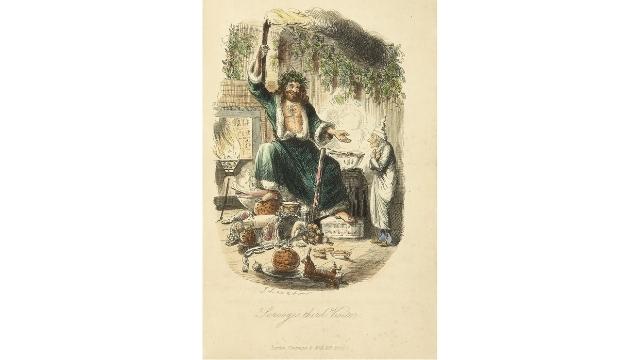

Although many in the West know Dickens’ Ebenezer Scrooge, there are probably more who when hearing the last name “Scrooge” would think of a different character, Uncle Scrooge, the super-rich and stereotypically greedy uncle of Donald Duck in the Walt Disney comics. Uncle Scrooge was created for Disney by famous cartoonist Carl Barks in 1947, who named him after Dickens’ character, and first appeared in a Christmas story. While on the surface Uncle Scrooge is dominated by greediness, at the end of Barks’ stories one discovers that he is not really a villain, has soft spots in his heart, and is capable of unpredictable acts of generosity, particularly at Christmas. He is a Scrooge who has already been visited by his ghosts.


Dickens and Barks, whose comics are now seriously discussed by academics as metaphors of post-World-War-II American society, had in common that they were vaguely Christian, but were not active in organized religion. Dickens was famously critical of Roman Catholicism and Evangelicalism, although he was not an atheist. Some of Barks’ Uncle Scrooge stories are beautiful Christmas tales but, just as in Dickens’ Christmas Carol there is no religion in this Christmas, although we can see a deep spiritual meaning in the idea that hearts can be changed and conversion is possible if one, as the leader of Tai Ji Men, Dr. Hong Tao-Tze, would say, turns to conscience.
25 years ago, on December 19, 1996, Dr. Hong, his wife and two dizi (disciples) were victims of a horrific injustice. They were arrested during a politically motivated crackdown on Taiwan’s religious and spiritual minorities, including Tai Ji Men. All dizi had to suffer media slander and were bullied at work and in schools. The Christmas of 1996 was their saddest Christmas. Happily, courts of law later vindicated Dr. Hong and Tai Ji Men, declaring them innocent of all charges. Less happily, Taiwan’s National Taxation Bureau ignored the verdicts of criminal courts, which had also concluded that there was no tax evasion, and continued to issue ill-founded tax bills for the years 1991 to 1996, finally maintaining only one of them, for the year 1992, on which basis sacred land intended for a self-cultivation center of Tai Ji Men was auctioned off and, after the auctions had not been successful, confiscated in 2020.
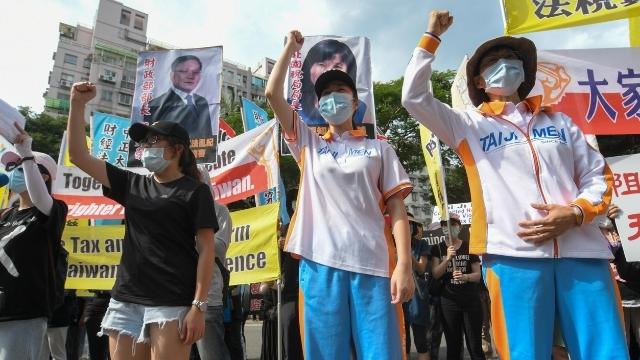

This injustice generated widespread protests, and Tai Ji Men dizi had to note that, unlike both Dickens’ and Barks’ Scrooge, bureaucrats in Taiwan were deaf to the voice of conscience. Yet, a miracle happened, or perhaps two. The first miracle is that dizi of all ages, from teenagers and even children to elderly women and men, continued to denounce the injustice for twenty-five years, without losing their determination and passion for truth. Those in Taiwan who believe this protest will simply go away with the passing of time are wrong. Generation after generation of Tai Ji Men will continue to fight until the case is solved.
The second miracle is that dozens of international scholars and human rights activists from all over the world, from Brazil and United States to France and Russia, rallied in support of Tai Ji Men. Many religious and spiritual movements are victims of injustice, but the quick and widespread mobilization in favor of Tai Ji Men is unprecedented. These scholars and activists became friends with dizi and between themselves, creating a global community, which also will not go away until the case is solved.
In face of evil and injustice, friendship and a passion for truth and justice continue to flourish. This proves that miracles happen. We now wait for the third miracle, the solution of the Tai Ji Men case. It may look like a dream, but some dreams are so strong that they end up coming true.


